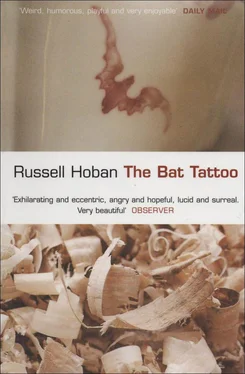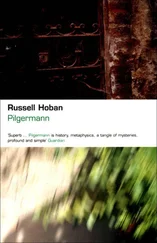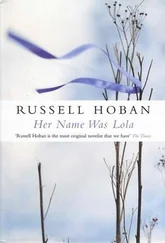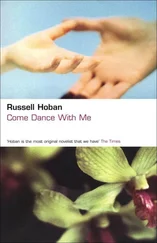You can do it either way, really: Monet defined his forms with light; Chardin with darkness. Monet’s figures, his flowers, his rocks, his boats and his sea all partake of the light; they mingle with it; one can’t say exactly where the light leaves off and they begin. Chardin’s people, his animals alive and dead, his still lifes all husband carefully the light allotted to them in the darkness that defines them. Chardin died in 1779, Monet in 1926. Certainly Monet’s is the more modern approach but I am a Chardin sort of person. At the exhibition at the Royal Academy I stood in front of his paintings caught by the lucent mystery of a glass of water, the quiet crucifixion of a hare. No, I am not modern.
In my buying and selling I’m closer to the modern era; I’ve got Clarice Cliff and Susy Cooper china, Kosta and Orrefors glass. In costume jewellery I’ve got two Schiaparelli, three Trifari and one Kramer at present, a few things that go back to the twenties and earlier but mostly they’re from the forties and fifties: coloured glass, marcasite, paste. I like cheerful things that sparkle and I like to see women smiling as they put them on.
Saturday went well at Chelsea Town Hall. I bought almost as much as I sold but they were things I expect to do all right with. I had the usual timewasters who blocked the stall without buying anything but nothing was stolen and there was a really nice Japanese woman who appreciated what I had on display and bought two of my most expensive necklaces. It isn’t just the money, it’s the recognition I crave — the little smile and nod and the look that says, ‘Ah yes, you know what’s good.’
On Mondays I do Covent Garden, the Jubilee Market, so on Sunday I look at my stock and decide what to take; it’s the sort of thing that tends to fill the time available for it. I was luxuriating in indecision when the doorbell rang and I knew it would be Jehovah’s Witnesses. I hadn’t seen any for a long time and I’d begun to wonder whether they were an endangered species. These two looked diffident but daring, like animals returning to an old habitat but taking nothing for granted. One was a white man, slight and bespectacled, who looked like a stamp collector. He was wearing a suit and a tie. The other was a black woman, tall and delicate, soberly dressed, who seemed remote but committed. They stood on the doorstep, prepared for rejection but modestly hopeful.
‘Good morning,’ I said.
‘Good morning,’ said the man, looking slightly more confident. ‘We’re going round encouraging people to read the Word of God and take comfort and guidance from it.’
‘I’ve read the Old Testament and the New Testament and the Apocrypha,’ I said. ‘I made notes at the time but I can’t give you chapter and verse.’
‘So you don’t turn to the Word of God regularly?’ said the woman, gently but with a little edge to it.
‘No. What’s your message for the present time?’
‘This is a time of adversity, isn’t it?’ said the man. ‘I mean, look around you — is this what you’d call a good time?’
‘No, it isn’t.’
‘It isn’t; it’s a time of adversity and this is God’s answer to a world that has turned away from Him. Do you remember Daniel 2. 44?’
‘No.’ The sun was doing its Sunday-afternoon thing: five hundred million years left to live. Peter Rabbit on Mars?
‘… kingdoms,’ said the man. The woman nodded.
‘What?’ I said.
‘Nebuchadnezzar’s dream, Daniel 2.1,’ said the man. ‘“His spirit was troubled, and his sleep brake from him.”’
‘I remember Belshazzar’s feast but not Nebuchadnezzar’s dream.’
‘Nebuchadnezzar,’ said the man, ‘had a dream in which he saw a great image. “This image’s head was of fine gold …”’
‘That’s the one with feet of clay,’ I said. ‘Right?’
‘Right,’ said the man. He took out his little Bible in which the passage was underlined. ‘Daniel 2.42,’ he said triumphantly. ‘“And as the toes of the feet were part of iron, and part of clay, so the kingdom shall be partly strong, and partly broken.” And in the next verse: “And whereas thou sawest iron mixed with miry clay, they shall mingle themselves with the seed of men: but they shall not cleave one to another, even as iron is not mixed with clay.”’
‘Yes,’ I said, ‘but I don’t remember what’s next.’
‘Now we come to it,’ he said, ‘Daniel 2.44: “And in the days of these kings shall the God of heaven set up a kingdom, which shall never be destroyed: and the kingdom shall not be left to other people, but it shall break in pieces and consume all these kingdoms, and it shall stand for ever.” That’s God’s Kingdom, and Jesus is its King.’
‘Not Jehovah?’
‘No, Jehovah appointed Jesus King in 1914.’
‘And he’s been King ever since,’ said the woman.
‘He’s doing a lot better than Prince Charles, isn’t he,’ I said.
Both of them looked at me with their heads at a slight angle. ‘Well,’ said the man, ‘it’s been a pleasure talking to you. Can we leave this brochure with you?’ There was a tri-ethnic group of faces on the cover. What Does God Require of Us? was the title, correctly spelled.
‘Thank you,’ I said. ‘The blood is the life, isn’t it?’
‘Sorry?’ said the man.
‘The blood is the life, isn’t it?’
‘That’s what God says.’
‘Dracula said the same thing. That’s why Renfield ate flies. What about the Jehovah’s Witness who lost five pints of blood in a machete attack? Did you see it in The Times? ’
‘We heard about it.’
‘Why don’t Jehovah’s Witnesses accept blood transfusions?’
‘It says right here,’ said the man, opening the brochure to the appropriate page, ‘“We must not take into our bodies in any way other people’s blood or even our own blood that has been stored (Acts 21.25).”’
‘Hang on,’ I said. I went and got my King James version off the shelf and looked up Acts 21.25. Returning to my visitors I read aloud: ‘“As touching the Gentiles which believe, we have written and concluded that they observe no such thing, save only that they keep themselves from things offered to idols, and from blood, and from strangled, and from fornication.” That isn’t what I’d call a clear-cut prohibition of transfusions,’ I said.
‘Jehovah’s requirement is in those words,’ said the man, ‘and Jehovah’s Witnesses obey it.’
‘But this bloke,’ I said, ‘renounced his Jehovah’s Witnesshood because the blood is the life and he wanted a transfusion so he could go on living.’
‘Not everyone has the faith to uphold God’s laws,’ said the man smoothly. ‘Thank you for your time and your interest. We must be going.’ And they went, still with their heads at an angle. The brochure had a back-of-a-cereal-box quality but obviously it works for the people who go around ringing doorbells to share their enlightenment with the rest of us. If there were a Jehovah, it’s just the sort of thing he might do as an audience warm-up for Armageddon. I am actually a believer: I have faith that there’s nothing that cares about us one way or the other.
After the Jehovah’s Witnesses left I went out to the garden where I grazed safely on the Sunday Times and the Observer and drank many cups of lemon tea. The usual blackbird, the husband, was standing on the fence and zicking to his wife and children. I think they may be nesting in the camellia bush which is too low to be safe but I haven’t wanted to disturb them by getting close enough to see. It’s such a peaceful sound, that zicking; it reminds me that the seasons still arrive at their appointed times, more or less.
Читать дальше












